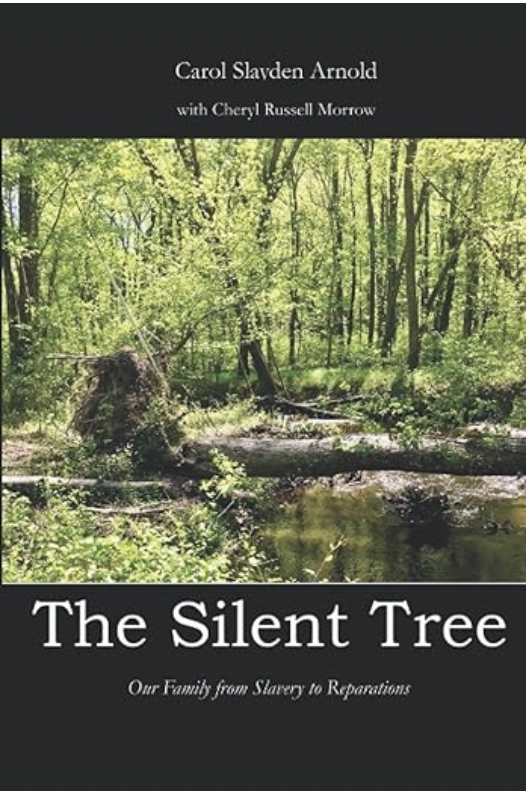The Silent Tree
Our Family from Slavery to Reparations
A story about coming to terms with a family’s complex genealogy, The Silent Tree is a poetic intergenerational memoir.
The distant past and the present collide in The Silent Tree, Carol Slayden Arnold’s history-based memoir, written with Cheryl Russell Morrow, about the lasting effects of slavery and prolonged racism in her family. Her introspective text explores the Slayden family’s relationship with slavery, racism, and the repercussions of both, which accumulated over the course of generations.
Growing up white in a rural suburb of Tacoma, Washington, Arnold was not acutely aware of racism; it existed on the periphery of her life in the form of occasional derogatory comments from family members. Her teachers just touched on the history of slavery in the United States, and her childhood community was not known for diversity. Her grandfather’s roots just west of Nashville, Tennessee, were well-known in her family, but it wasn’t until Arnold discovered that her great-great-grandfather had owned slaves that she realized the Slayden legacy was not what it seemed.
In addition to Arnold musing on how she came to be who she is, the book factors in a host of personalities from before she was born to show how they influenced her family. In spite of time spent listening to her grandfather’s stories and studying her aunt’s meticulous genealogical diagram, Arnold had to dig much deeper into public records, maps, and “dusty archives” to learn about the hidden branches of her family tree and paint a more complete picture of it. This book weaves together stories that are relevant not just to her immediate relatives but to anyone with ties to systemic inequality in American history up to the present.
From the account of a slave ship’s arrival in Virginia in 1688 to a visit with her cousins in Colorado Springs in 2019, Arnold unravels a complex tapestry of human interaction with quiet confidence. What she did not live firsthand, but witnessed from a distance or studied through the lens of legalese and formal documents, Arnold retells in a methodical, almost detached manner, with the authority of an academic, all while disclaiming
I don’t have the resources of the Jesuits or the prestige of Georgetown University. Compared to their work, this book is a drop in the ocean. But I offer this microhistory of the Black Slaydens—just ordinary families in the broad landscape of African American history—as a step on the road to reparations and reconciliation.
Also included are travel diary elements with poetic descriptions of the many stops along her route in her pursuit of the truth, helping to bring individuals from the eighteenth and nineteenth centuries to life and underscore the various manifestations of their resilient, enduring natures with profound emotion, humility, and respect.
A profound family memoir, The Silent Tree studies the far-reaching consequences of slavery and oppression.
Reviewed by
Katelynn Watkins
Disclosure: This article is not an endorsement, but a review. The publisher of this book provided free copies of the book and paid a small fee to have their book reviewed by a professional reviewer. Foreword Reviews and Clarion Reviews make no guarantee that the publisher will receive a positive review. Foreword Magazine, Inc. is disclosing this in accordance with the Federal Trade Commission’s 16 CFR, Part 255.

